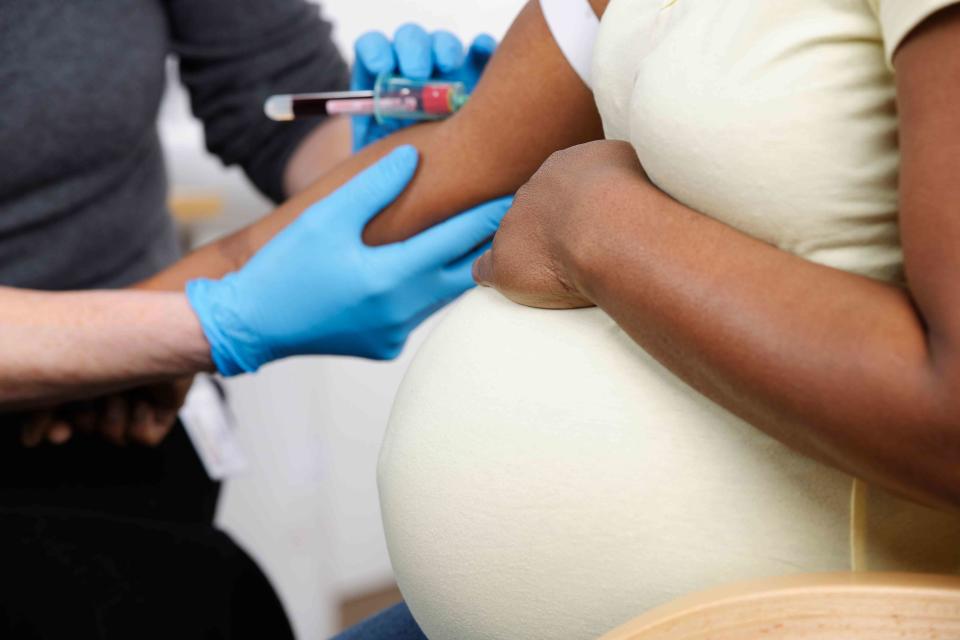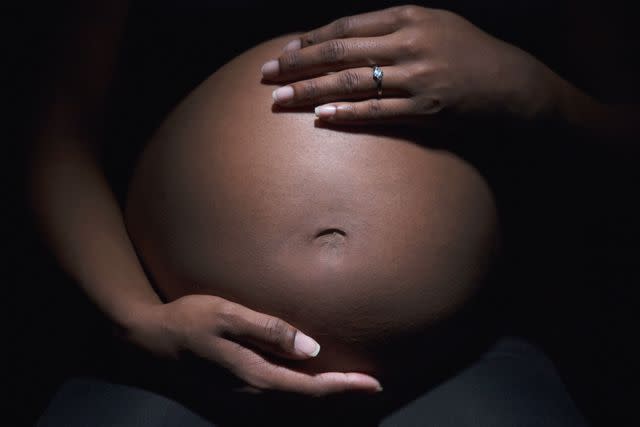New Blood Test Can Predict Preeclampsia — a Potentially Dangerous Pregnancy Complication — Within 30 Minutes
The new blood test is being rolled out in U.S. Hospitals with the hope that detection will lead to early, life-saving intervention for mother and child

Getty /iStockphoto
A new blood test can determine the risk of developing preeclampsia during pregnancy.The FDA has approved a new blood test that can predict the development of severe preeclampsia during pregnancy — and the test is rolling out in U.S. hospitals now.
The novel biomarker test “can predict with 94% accuracy whether or not a pregnant person will develop severe preeclampsia in the next two weeks,” according to a report in Health.
About 1 in 25 pregnancies will develop preeclampsia, a complication that usually develops after 20 weeks, according to the Mayo Clinic. It’s marked by high blood pressure and proteinuria (protein in the urine) that can lead to kidney or other organ damage.

Getty
A new blood test can determine the risk of developing preeclampsia during pregnancy.Never miss a story — sign up for PEOPLE's free daily newsletter to stay up-to-date on the best of what PEOPLE has to offer, from juicy celebrity news to compelling human interest stories.
Symptoms can include severe headaches, pain, nausea, and shortness of vision. If a pregnant patient has high blood pressure, their doctor will order a blood test or a 24-hour urine sample to determine if they’ve developed preeclampsia. Meanwhile, the new blood test can deliver results from a hospital’s lab in as little as 30 minutes.
The only way to resolve preeclampsia is to induce delivery.
But with this new blood test, doctors can “predict who will have severe preeclampsia,” Anum Minhas, MD, an assistant professor of medicine at Johns Hopkins Medicine, who specializes in cardio-obstetrics and cardiovascular disease in women, told Health.
Related: Inside Kim Kardashian West's Baby Drama and How Saint Answered Her Prayers
“In that case, those women may be hospitalized early to be monitored or need to have their babies early.”
Preeclampsia can develop in any pregnancy; Kim Kardashian was diagnosed with preeclampsia when she was pregnant with daughter North, now 10, which she said caused her body to “swell uncontrollably.”
"I gained 60 lbs. and delivered almost 6 weeks early and I cried every single day over what was happening to my body mainly from the pressures of being constantly compared to what society considered a healthy pregnant person should look like,” the mom of four, now 42, said.
Beyoncé‘ also suffered from preeclampsia while pregnant with twins Sir and Rumi in 2017, and opened up about her challenging pregnancy in her Netflix documentary Homecoming.
“I had an extremely difficult pregnancy. I had high blood pressure. I developed toxemia, preeclampsia, and in the womb, one of my babies’ heartbeats paused a few times, so I had to get an emergency C-section,” Beyoncé, now 41, said.

Just last month, Olympic track and field gold medalist Tori Bowie was only 32 when she died from childbirth complications — which included “respiratory distress and eclampsia.”
Eclampsia is a “rare but serious complication of preeclampsia,” according to the Cleveland Clinic.
But while anyone can develop preeclampsia, there are certain risk factors that make the illness more likely, such as being overweight, being older than age 40 — and being Black.
The CDC reports that the rate of preeclampsia is 60% higher in Black patients — and they suffer more dire outcomes, as “Black women more likely to…experience poorer outcomes associated with the condition, such as kidney damage and death.”
“This disease doesn’t discriminate based on race but our health system sometimes does,” Tina Liedtky, president of clinical diagnostics at the company that developed the new blood test test, Thermo Fisher Scientific, told Health.
“These tests allow for an objective measure of what is going on in a woman’s body and that can make a difference in saving the child and the mother’s life or not.”
For more People news, make sure to sign up for our newsletter!
Read the original article on People.

